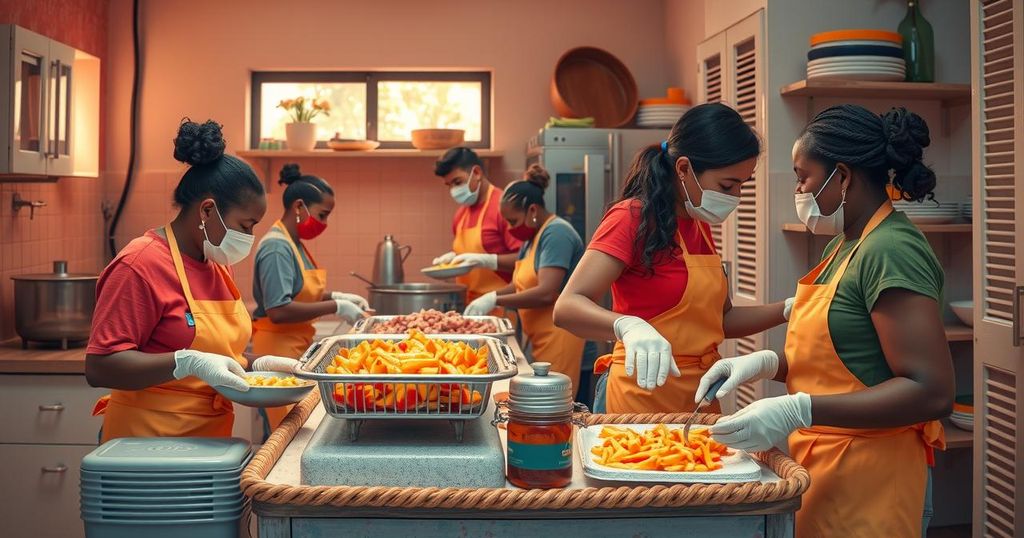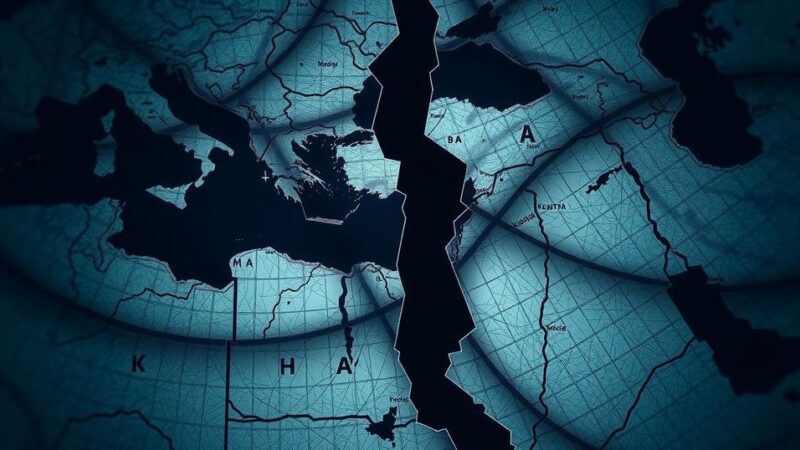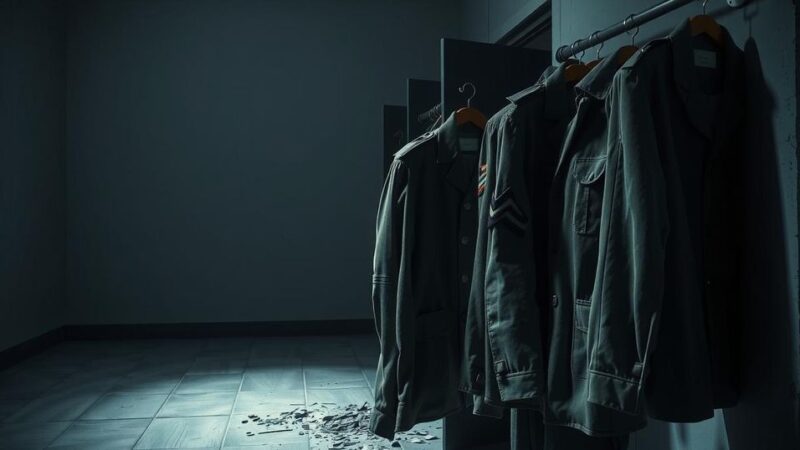Amid the ongoing crisis in Sudan, grassroots activists are providing essential services, including mental health support and family reunification, as state institutions collapse. Despite facing trauma and resource shortages, these community-led efforts symbolize resilience and hope. However, the urgent need for sustained international assistance is crucial for the survival of these initiatives and their effectiveness in addressing the growing challenges faced by affected populations.
In war-torn Sudan, citizens have taken initiative to provide essential services amid a prolonged crisis characterized by the collapse of state institutions. Grassroot activists are assisting families affected by conflict, particularly through mental health support and volunteer networks that facilitate the reunification of displaced individuals. After two years of conflict, with ongoing violence and limited aid, these efforts have become a vital lifeline for many in Sudan.
Mental health professional Maab Labib highlights the commitment of her team at Bahri Emergency Room, stating, “We provide free mental health services to individuals and groups who are victims of war.” Their services, which include online and in-person consultations, have reached over 1,500 individuals, offering crucial support without discrimination based on age or nationality.
However, the caregivers themselves are often traumatized and displaced. The service providers face immense strain as they struggle to offer peer support while contending with a dire lack of resources. Despite these challenges, the Bahri Emergency Room contemplates a broader mutual support system that has evolved from Sudan’s revolutionary history, creating initiatives such as communal kitchens and psychological training programs that began during the 2018-19 uprising.
The grassroots networks symbolize hope in a collapsing state, according to Guido Lanfranchi from the Clingendael Institute, as they foster solidarity among communities. However, these groups become targets as violence escalates, with mutual aid efforts facing criticism and threats. Anette Hoffmann warns, “Mutual aid groups are being attacked by both sides,” emphasizing the precarious nature of their existence amidst conflict.
The United Nations reports that over 25 million people in Sudan require humanitarian assistance, exacerbated by the recent suspension of USAID-funded programs, which has diminished regular aid delivery. As numerous NGOs withdraw, local organizations take on the burden, providing essential food and trauma programs in increasingly dire circumstances.
The Safe Haven Organization serves as an exemplar, managing food support for thousands daily. However, they have had to reduce services due to funding issues, as project manager Mozamul Mohammed Ali notes, “When other NGOs — especially those backed by USAID — pulled out, it fell to us to cover more and more people.” Adapting to the evolving needs of communities, they have expanded their services to include psychological reunifications.
Mental health challenges are rising, particularly among vulnerable populations such as women and children, with stigma surrounding mental health support remaining an ongoing issue. Trauma center manager Mohammed Abkar Goma explains their initiative to train non-specialists in basic psychological first aid to help those without access to professional services.
While these grassroots efforts demonstrate remarkable resilience, community leaders stress that sustained international support is urgently needed. Ali emphasizes this need for a broader range of services and assistance, stating, “The needs have become more complex.” Lanfranchi concurs, noting, “It’s a form of quiet political defiance,” as these activists work tirelessly amid a backdrop of state collapse and absent international aid. Volunteers, including Ali, affirm their commitment despite risks, saying, “We are not heroes. We just couldn’t watch our people suffer without doing something.”
Grassroots activists in Sudan are stepping up to fill the void left by collapsing state institutions, providing essential services amid an ongoing humanitarian crisis. Organizations like the Bahri Emergency Room and the Safe Haven Organization are pivotal in offering mental health support, food programs, and family reunifications. However, the challenges are immense, with increased trauma and limited resources underscoring the need for sustained international assistance to empower these community-led initiatives effectively. Without external support, these efforts risk being overwhelmed by the escalating demands of the crisis.
Original Source: www.arabnews.pk






